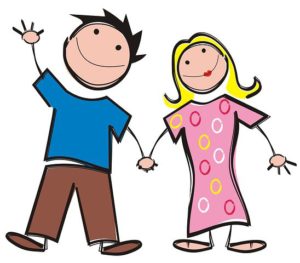Depression often comes with a stigma – some believe it’s all in your head or that all you have to do is ‘get over it’. Research and my experience as a therapist (and human!) disagree with these beliefs. Depression isn’t a choice. If it were, those suffering from it wouldn’t be depressed any longer. Understanding how depression is something that takes deliberate effort to combat and often professional help from a counselor is the first step towards happiness.
Depression is different than sadness that might occur in different situations. These situations, along with accompanying depression, come and go. Sadness isn’t something to fear or avoid. In fact, letting ourselves experience sadness helps us to live a full life. People often put themselves in an impossible situation when they try to avoid feeling sad because they think that sadness is bad and that they are bad for feeling it. This sentiment often resounds in religious settings where some would believe that they should just feel happy because of their beliefs. Learning how to embrace the uncomfortable emotions in life frees us to also feel the comfortable emotions as well (such as happiness). We can’t have one without the other. Trying to not feel sad is a recipe for addiction. It takes a strong substance – alcohol, work or pornography – to numb the feeling of sadness that comes to each one of us.
Embrace uncomfortable emotions and see how much more full and real your life becomes.
 Couples counseling, if done right, is ‘husband friendly’. Most couples come into therapy because the wife seeks help, sets up an appointment and convinces her husband to go with her. He often feels as if he is forced into the session and as if he is the bad guy. He might think that the therapist is going to be on his wife’s side and that together, his wife and the therapist, are going to tell him what he needs to change.
Couples counseling, if done right, is ‘husband friendly’. Most couples come into therapy because the wife seeks help, sets up an appointment and convinces her husband to go with her. He often feels as if he is forced into the session and as if he is the bad guy. He might think that the therapist is going to be on his wife’s side and that together, his wife and the therapist, are going to tell him what he needs to change.
Effective couples counseling couldn’t be further from this scenario. In couple’s therapy, a therapist will see the problem as something the husband and wife can fight together. The problem isn’t the wife and it’s not the husband – it’s the way that they have been going about their relationship. This is something the couple can work on changing without blaming each other. Couples often fall into the trap of thinking that their spouse is to blame for their relationship issues. They believe that if their spouse would just stop (fill in the blank) that they would be happy and have no problems. Thinking this way leads to frustration and disappointment. It takes courage and honesty to look at yourself and what you can change to make your marriage work.
In couples therapy a seasoned therapist will ask questions about the couple’s relationship patterns, not about who’s fault it is that they are there. They will talk about how they are talking with each other, what they are talking about, what they are not talking about, etc. Understanding these relationship patterns is one of the first steps to effective counseling. As soon as the coupe can get on the same team to fight against these unhealthy patterns that they have slipped into as a partnership, then they can work on identifying their underlying emotional needs and potential injuries. This is where great work happens as partners identify and express their emotional need and positions in a way that invites healing, connection and safety.